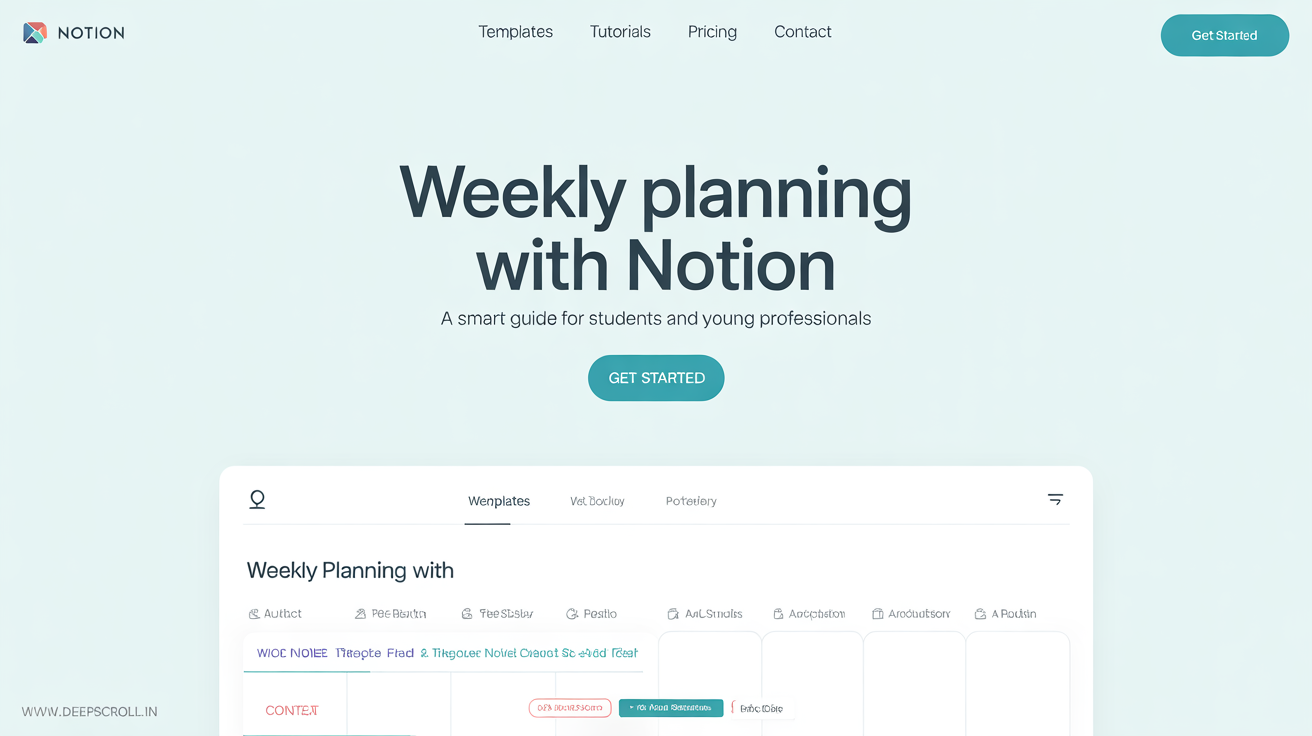
Weekly planning with Notion: How to organize your life and goals
For students, ambitious young professionals, and lifelong learners, balancing study, work, and personal ambitions can be daunting. Weekly planning is crucial for winning back time and staying motivated, but finding the right tool is often half the battle. Notion stands out as a dynamic platform—offering flexibility, multi-device access, and a vibrant online community. Whether you’re aiming to ace classes, manage remote work, or upskill through side projects, this article will show you how to create a weekly planning system in Notion that evolves with your needs. Let’s break down practical steps, templates, and tips, all tailored to help you reach your goals without overwhelm.
Why weekly planning matters for modern learners and creators
Everyone gets the same 168 hours each week, but not everyone uses them wisely. For high school and college students juggling assignments, or remote workers balancing client tasks and self-development, the absence of a weekly plan often leads to missed deadlines, stress, or stagnant progress. In fact:
| Group | Without weekly planning | With weekly planning |
|---|---|---|
| Students | 44% miss deadlines regularly | 82% submit work early (Self-reported, source) |
| Young professionals | 55% feel burnt out | 68% report higher productivity (source) |
Weekly planning isn’t just about cramming more into your week—it’s strategic. It guides your focus, breaks your goals into manageable steps, and creates feedback loops for continuous improvement.
Setting up Notion for your weekly workflow
Notion’s modular design means you can build a workflow that’s as simple or advanced as you want. Start with basics:
- Create a new page called Weekly Dashboard.
- Add a calendar database for your week—use filtered views to display just this week’s tasks or events.
- Include sections for Priorities, Goals, Class schedules or Projects.
Notion is famed for its template gallery. Browse community templates (Notion Templates) to jump-start your setup. Many templates allow for drag-and-drop reordering, recurring tasks, and even links to Google Calendar or Trello via integrations, making it ideal for tech-savvy users who value automation.
Customizing your workflow for maximum impact
Your planning system should suit your unique routine and ambitions. Here’s how to make your Notion setup work for you:
- Students: Add a Class Tracker and link assignments directly to your weekly schedule. Set due dates and reminders.
- Young professionals: Create a Project Pipeline next to your weekly tasks, letting you shift big deliverables and networking events into your daily agenda.
- Remote workers/entrepreneurs: Use a Habit Tracker alongside your main view. Track learning sprints, client meetings, and personal development moments.
- Lifelong learners: Insert a database for Online Courses/Skill Progress, tying key tasks to weekly study blocks.
Customize filtered views by tags (e.g., #urgent, #study, #deep work) and archive completed tasks to keep your dashboard uncluttered.
Review, reflect and iterate: The secret to growth
The secret to making weekly planning sustainable? Reflection and iteration. Every weekend, dedicate 15 minutes to:
- Review accomplished tasks—Did you hit your targets, or did distractions derail your plans?
- Note patterns—Are specific days more productive? Are some routines not helping?
- Set blocks for improvement—Schedule focus sessions for high-impact learning or key deliverables.
- Adjust your system—Add new trackers, streamline views, or automate repetitive sections as you learn what works.
Sharing your setup or questions in communities like Reddit r/Notion or Notion blog can inspire innovation and accountability—don’t underestimate the value of digital peer support.
Conclusion
A thoughtful weekly planning routine in Notion combines the structure of tradition with the adaptability of digital tools. By blending calendars, habit trackers, and goal pipelines tailored to your individual journey—whether you’re a student with deadlines or a remote worker managing side hustles—you’ll operate with greater clarity, reduce stress, and make progress visible. The process doesn’t end at setup: weekly reviews and ongoing customization are key to staying aligned with evolving goals. Experiment, reflect, and lean into the community to maximize your system. With Notion, you’re not just planning a week—you’re engineering your success.
“Give me six hours to chop down a tree and I will spend the first four sharpening the axe.” — Abraham Lincoln
